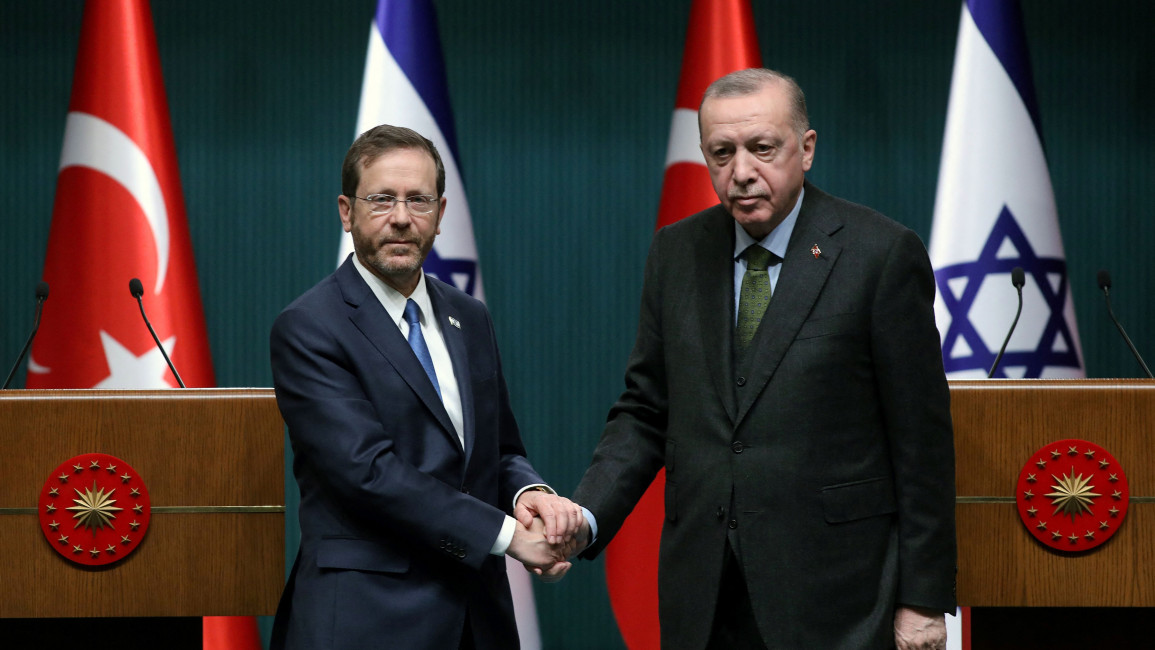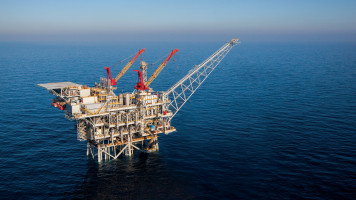
The rebuilding of Egypt-Qatar relations

On 13 September, Egyptian President Abdel Fattah al-Sisi paid a two-day visit to Qatar. This was Sisi’s first trip to Doha since Egypt and Qatar reconciled through the al-Ula summit of January 2021.
This visit was important to Cairo and Doha’s improving relationship, which has vast potential to continue growing given how much both sides are vested in stronger bilateral ties.
It is remarkable how quickly Egypt and Qatar have mended fences since the Gulf Cooperation Council (GCC) crisis officially ended almost 21 months ago.
In late 2020, when many analysts were anticipating a resolution of the rift in Saudi-Qatari relations, some experts expected Egypt to continue boycotting Qatar.
"Sisi's trip to Doha last week shows that Egypt is signalling that the 2017 GCC crisis is behind it"
Overcoming past tensions
Over the years, officials in Sisi’s government have expressed hatred for Qatar. Figures in Hosni Mubarak’s inner circle attributed Al Jazeera’s pro-Arab Spring coverage in 2011 to a “Qatari vendetta” against the former Egyptian president.
Mohammed Morsi’s 2013 ouster quickly led to a deterioration of Egyptian-Qatari relations.
In 2015, Ahmed Mousa, a pro-Sisi television host, labelled Qatar a member of the “axis of evil” and declared that “Qatar will pay the price” for its policies toward Egypt, which “must teach Qatar…a lesson it will never forget.” Two years later, he called on Egyptian expatriates in Doha to protest the Qatari government until its “fall”.
Around that time, Nashaat al-Deehy, another pro-regime voice in Egypt’s media, said that Doha should compensate Egypt with $100 billion for its crimes of “terrorism”.
He declared that the Emir of Qatar “should come crawling on his knees, carrying his shrouds in his hands, and beg the Egyptian people for their absolution and forgiveness”.
Such vitriol for Qatar’s Muslim Brotherhood-friendly foreign policy made Cairo an enthusiastic supporter of the 2017-21 blockade.
However, by early 2021, Egypt’s government came to terms with how the blockade had failed to achieve its goals. Doha was clearly not on the verge of succumbing to regional pressure to shut down Al Jazeera, close the joint Qatari-Turkish military base, or extradite Islamist dissidents to blockading states.
Additionally, Egypt’s domestic environment had changed over the years. The Egyptian Muslim Brotherhood’s removal from the country’s political arena and social life gave authorities in Cairo far less reason to perceive Qatar as a threat, especially compared to the 2013-17 period.
By the time of the al-Ula summit, “the grievances and the problems [which Egyptian officials] have with Qatar were no longer feasible,” Dr Andreas Krieg, an associate professor at the School of Security Studies at King’s College London, told The New Arab.
“The Muslim Brotherhood issue, the issue that emerged from the Arab Spring where Qatar and Al Jazeera, in particular, were supporting the revolutionaries - these issues disappeared a long time ago. So, the blockade and the crisis no longer made sense from an Egyptian point of view.”
Sisi’s trip to Doha last week “shows that Egypt is signalling that the 2017 GCC crisis is behind it,” said Caroline Rose, a senior analyst and head of the Power Vacuums programme at the New Lines Institute for Strategy and Policy, in a TNA interview.
|
|
The influence of the West
Egypt’s relationship with the US has also been relevant. Cairo and Doha restored diplomatic relations on President Joe Biden’s inauguration day.
Egypt expected the incoming administration to be less accepting of certain aspects of Egypt’s internal and foreign policies, which incentivised Cairo to take certain actions that could buy Sisi’s government some goodwill with the new White House. Reconciling with Qatar was an easy way to do so.
“Egypt and particularly the Sisi regime is under immense pressure from Washington and other Western governments on human rights. While the regime [is unwilling to make changes on that front], they’re trying to present themselves as an important partner in the region - one that brings different parties together. Egypt has been trying to present itself to the West as a broker and a deal maker,” explained Dr Krieg.
The economy is front and centre
One must take stock of Egypt’s serious economic problems. Within the context of the Russian-Ukrainian conflict, the global energy crisis, strained supply chains, and a suffering tourism sector, socioeconomic pressures are building on Egypt’s government.
At this sensitive juncture, Sisi sees more financial assistance from GCC states as increasingly important, and Doha is playing a role in this regard.
Earlier this year, Qatar deposited $3 billion in the Egyptian central bank. On 29 March, QatarEnergy signed an agreement with ExxonMobil to purchase a 40 percent stake in a gas project off Egypt’s coast.
"Like many other ties being forged and geopolitical shifts amidst the global food and energy crisis, this is a relationship of necessity for Cairo"
While Sisi was in Doha last week, Egypt and Qatar signed three memoranda of understanding (MoUs). One was between the two countries’ sovereign wealth funds. Several days later, the Egyptian prime minister and the chief of Asia-Pacific and Africa investments at Qatar Investment Authority (QIA) discussed possible Qatari investments in Egypt’s tourism sector.
Then one day later, the Egyptian transport minister and Abu Bakr Konidal of QIA’s investment arm, Maha Capital Partners, signed an MoU to upgrade the container terminal at Port Said.
Sisi sees such investment from the Gulf as critical to shoring up his country’s fragile economy. “Like many other ties being forged and geopolitical shifts amidst the global food and energy crisis, this is a relationship of necessity for Cairo,” according to Rose.
Experts contend that Egypt’s interests in Qatari investment factor into Cairo’s quest to avoid excessive dependence on Saudi Arabia and the United Arab Emirates (UAE).
“A new convergence of interests between Cairo and Doha counters the dominant role of the Emirati-Saudi duopoly. Cairo suffers from its dependence on the UAE-Saudi Arabia relationship,” Dr Giuseppe Dentice, the head of the MENA Desk at the Center for International Studies and teaching assistant at the Catholic University of the Sacred Heart in Milan, told TNA.
“In this perspective, Cairo aims to achieve a partial independence from Riyadh and Abu Dhabi through a tactical de-escalation with Doha in order to expand its key role in the Eastern Mediterranean-Suez Canal-Red Sea corridor,” he added.
“The Egyptians realise that they need to diversify. They can’t put their eggs all in one basket when it comes to the Gulf because the regime is very much dependent on foreign money and external bailouts,” said Dr Krieg.
“Economically Qatar is a very important economic partner that Sisi can’t do without.”
Regional portfolios
Egypt’s reconciliation with Qatar is not just about economic considerations. There are also regional issues which drive Cairo’s efforts to strengthen relations with Doha. Libya’s future is one of them because turmoil and terrorism in the North African country pose a grave threat to Egypt’s security.
Doha has been talking to actors on both sides of Libya’s divide, including those who, at least until recently, have been on extremely negative terms with Doha. The Tobruk-based House of Representatives joined the anti-Qatar boycott in 2017 and General Khalifa Haftar frequently expressed his vitriol for Doha throughout the blockade.
Yet, like Turkey, Qatar has recently been engaging the son of Haftar, Aguila Saleh, and others from eastern Libya.
Although it is premature to conclude that Egypt and Qatar’s engagement on the Libyan file can produce a breakthrough, Cairo and Doha discussing it is significant.
|
|
By addressing Libya’s situation with the Qataris, Egypt can present itself to the West as a diplomatic actor working to promote regional stability.
At the same time, Qatar’s engagement with Egypt on this portfolio helps Doha further demonstrate to team Biden that Qatar is a peacemaker in the Arab world.
Egypt’s challenges vis-à-vis the Grand Ethiopian Renaissance Dam (GERD) and Ethiopia’s internal situation represent other issues which concern Egypt.
The fact that Egypt and the UAE have not seen eye-to-eye on Ethiopia has had some negative implications for Cairo’s relationship with Abu Dhabi, giving Sisi’s regime reason to see engagement with Doha as constructive.
"Actors in the Middle East are engaging each other in more diplomatic and less confrontational ways"
“The Emiratis have done their own thing, securing their own national interest at the expense of Egypt, [which] has been a real shock for Cairo, particularly any time the Egyptians are supporting some of the factions in northern Ethiopia fighting the central government while the UAE has actively supported the central government with arms and support as well against the Tigray. So, they’ve been on opposing sides of a proxy war,” Dr Krieg told TNA.
“Increasingly it becomes clear to the Egyptians that they do what they do to serve their own national interests. They never do anything for free. That has been a bit of a wakeup call for the Egyptians and they’re now trying to diversify,” added Dr Krieg.
Gaza is another relevant file. Amid the May 2021 and August 2022 conflicts between Israel and Gaza-based groups, Cairo and Doha coordinated ceasefire efforts.
Both Egypt and Qatar have vested interests in maintaining relative calm in the enclave and when Israel attacks Gaza next, both Arab states will want to be able to work together to help secure future ceasefires.
Regional shifts
Recent developments in Egyptian-Qatari relations must be viewed in the context of regional rapprochements throughout 2021/22.
Since the al-Ula summit, and in light of the UAE’s diplomatic outreach to Turkey and Iran, as well as Turkey’s reconciliation with Israel, actors in the Middle East are engaging each other in more diplomatic and less confrontational ways.
At this stage, the Qataris are less focused on promoting Arab revolutions and giving Islamists media platforms in the Gulf. Doha is now more determined to build on the al-Ula summit’s outcome and present Qatar as a friend-of-all which promotes stability and supports a variety of countries in dire shape, including Egypt.
None of this is to say that all the bilateral baggage from the 2013-21 period has evaporated. Yet, there is real determination in both Egypt and Qatar to rebuild this relationship for the betterment of both countries and the region.
Giorgio Cafiero is the CEO of Gulf State Analytics.
Follow him on Twitter: @GiorgioCafiero




